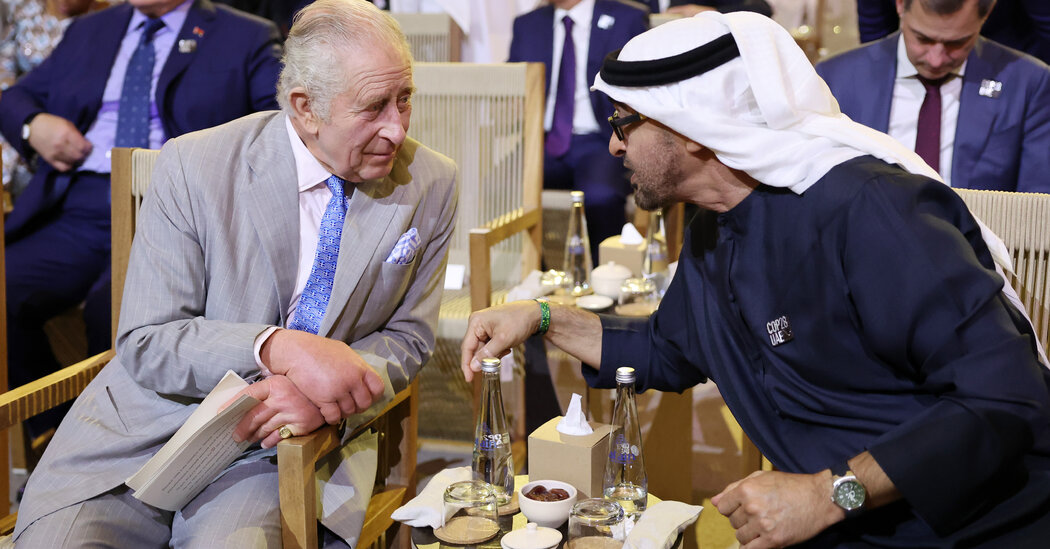The Global Climate Fund for Loss and Damage After the COP 2015 Conference: Mr. Al-Jeber, the President, and the Leaders
Mr. Al jeber defended fossil fuel in his opening remarks. “Let history reflect the fact that this is the presidency that made a bold choice to proactively engage with oil and gas companies,” he said.
The leaders calling for swift action to reduce emissions face a daunting task. While many developed countries are installing more wind and solar power, global greenhouse gas emissions and fossil fuel demand continue to rise.
It is no wonder that less rich countries are being hit hardest by the disasters of climate change. It is referred to as a fund for loss and damage in climate negotiations. After decades of stalled negotiations on this front, there was finally a breakthrough at last year’s COP. The delegates reached an agreement to create the fund but they left it up to future negotiations to decide how the fund would work. That’s what’s at stake now.
“We have the fund but we need money to make it worthwhile. What we have is an empty bucket,” Mohamed Adow, director of think tank Power Shift Africa, said in a statement last year.
The loss and damage fund was launched on the first day of the conference. That bucket has $400 million in it. Germany and the United Arab Emirates each pledged $100 million. The US gave $24.5 million, Japan $10 million, and the UK around $75 million.
“The absence of a defined replenishment cycle raises serious questions about the Fund’s long-term sustainability,” Harjeet Singh, head of global political strategy at Climate Action Network International, said in a statement. The responsibility to meet their financial obligations to the world’s wealthy nations now lies in their control, as a result of decades of excess fossil fuel consumption and a lack of adequate climate finance delivered to the Global South.
Tens of thousands of negotiators, activists, and corporate execs have descended upon Dubai to wrangle over the future of fossil fuels. Shouldn’t they have a future? Can governments reach a deal to end the use of oil, coal, and gas? Disasters such as the fires, floods, and other disasters intensify with climate change, leading to deep losses in countries. They want the biggest, heaviest-polluting nations to do something about it. At the conference they will be speaking to, they will be making their case.
The Paris Agreement had foresight and required a stocktake every five years to assess progress toward the goals of the accord. How much headway the countries have made has arrived and it is time for the governments to figure it out.
Not every climate conference gets as contentious as this year’s is shaping up to be. So The Verge has a quick guide to some of the biggest issues during the negotiations scheduled to run until December 12th.
Any final agreement must be ratified by every country in attendance. Each word in the final document will be scrutinized if there is unanimous consent. Oil Producing Nations have always objected to language calling for a rapid phaseout of fossil fuels.
The year will probably be the hottest in recorded history, as the meeting comes close to the end. The greenhouse gas emissions that have warmed the planet are a result of the burning of fossil fuels. Climate change is causing floods, fires and storms to become worse around the world.
There will be more heads of state and government speaking on Saturday as the event will go on for 10 days in an attempt to find common cause in the fight against climate change.
King Charles III, Prime Minister Mia Mottley of Barbados, President Volodymyr Zelensky of Ukraine and President William Ruto of Kenya are among those expected to speak on Friday, the second day of the meeting known as COP28. The president of Israel and the president of the Palestinians will be speaking seven weeks into the war.
But even as world leaders and diplomats gather, there is a sense of disillusionment in the air. The United Arab Emirates is a state that has been accused of trying to strike oil deals on the sidelines of the summit. The president of the proceedings, Sultan AlJaber, is also the Managing Director of Adnoc. Thousands of oil and gas executives are in attendance.
On the goal of halting global warming above 1.5 degrees Celsius: a keynote address by U.S. Energy Secretary E.R. Poincare
Many scientists think that it is impossible to keep global warming from rising more than 1.5 degrees Celsius, so he called for delegates to pursue efforts to do so.
